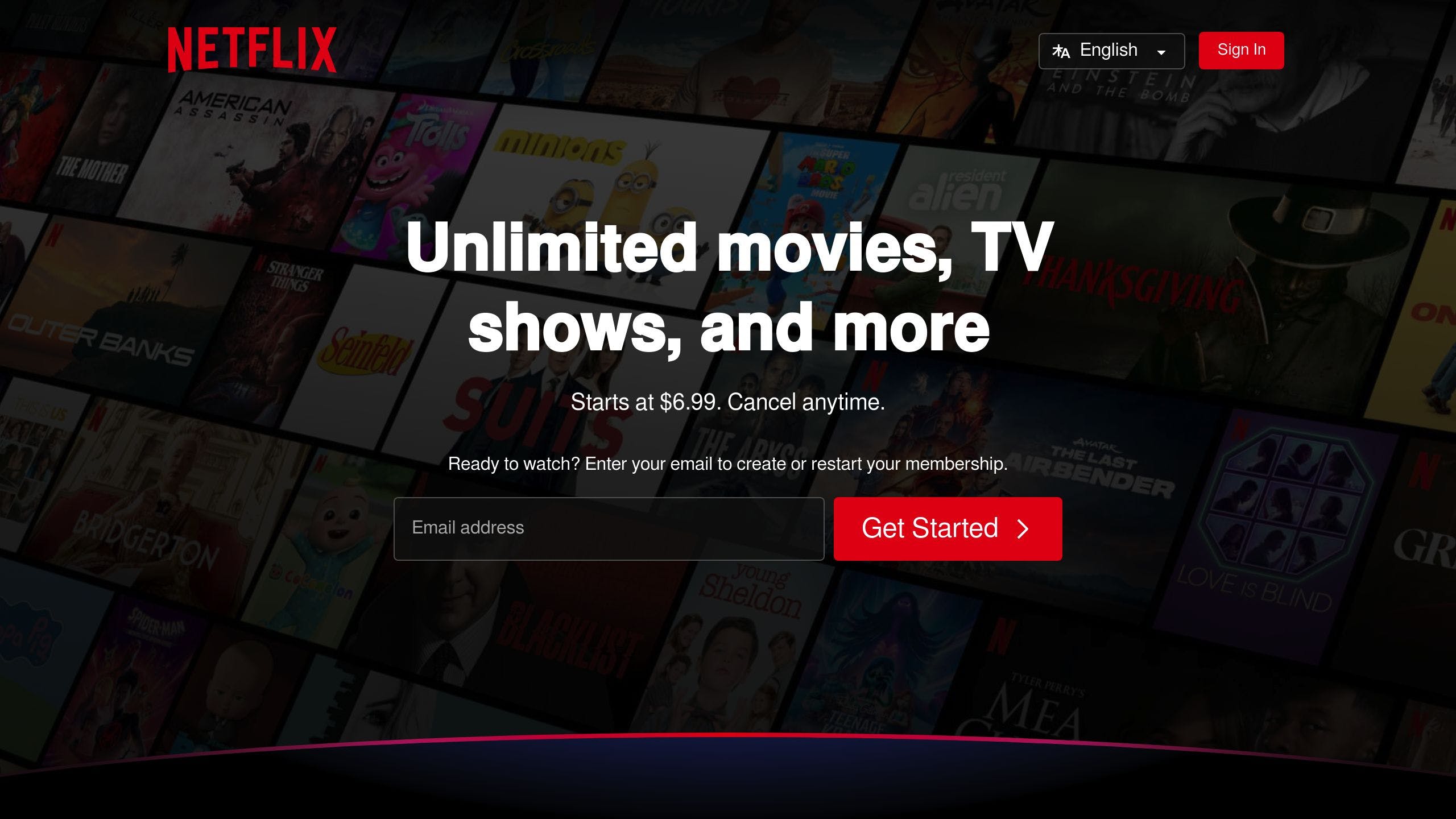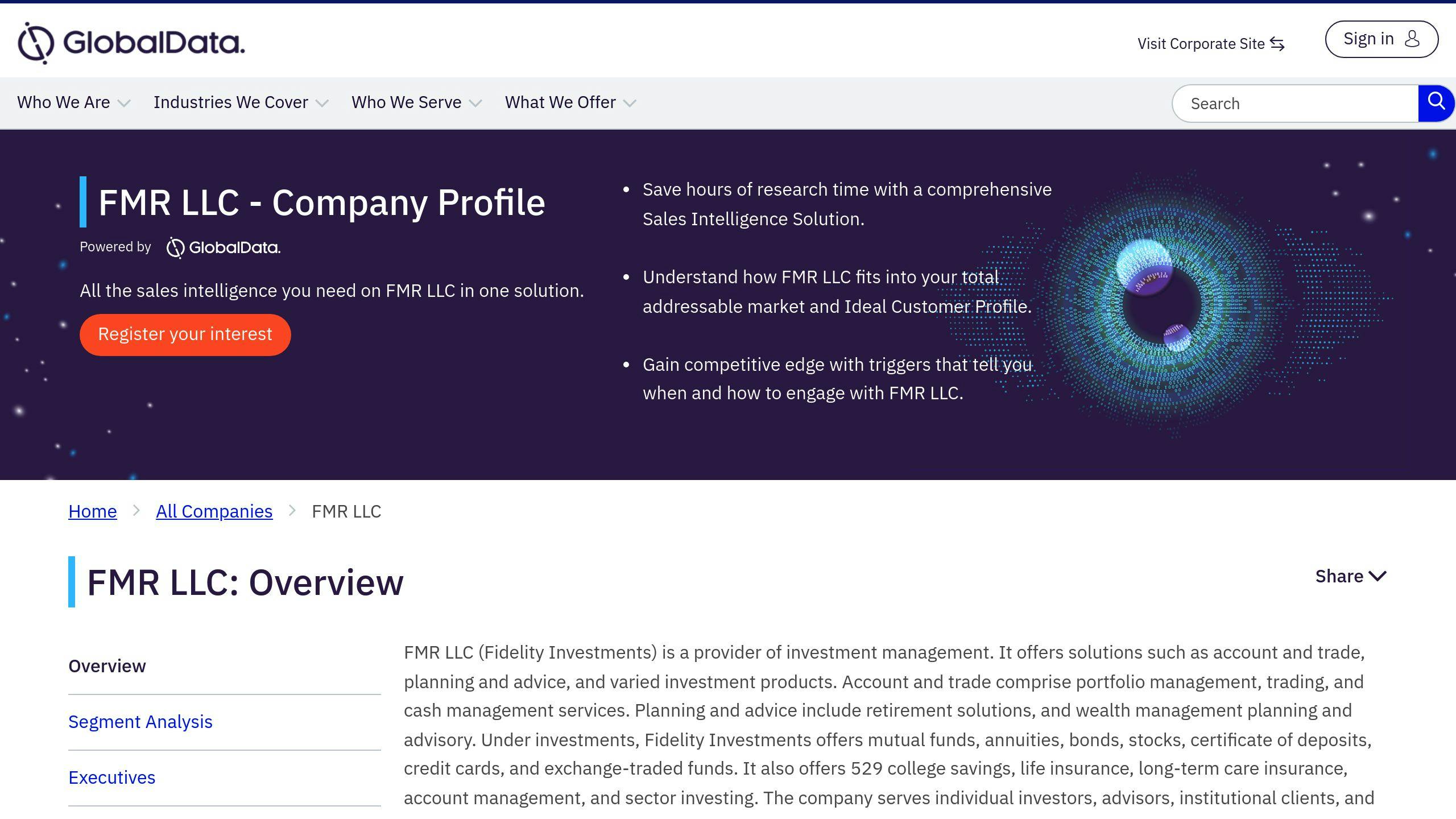Netflix is primarily owned by institutional investors, who control 80.93% of its shares as of mid-2024. The largest stakeholders are Vanguard Group Inc. (8.6%), BlackRock Inc. (7.36%), and FMR, LLC (4.9%). These firms play a major role in shaping Netflix’s governance and strategy.
Key individual shareholders include Reed Hastings, Netflix’s co-founder, who holds over 5.4 million shares, and Ted Sarandos, Co-CEO, who has reduced his holdings but remains influential in leadership. The board of directors actively participates in decision-making, ensuring alignment between institutional interests and company goals.
Netflix’s ownership structure supports its global growth, content investments, and competitive edge in the streaming industry.
Quick Overview:
- Institutional Ownership: 80.93%
- Top Investors: Vanguard (8.6%), BlackRock (7.36%), FMR, LLC (4.9%)
- Key Individuals: Reed Hastings (5.4M shares), Ted Sarandos (reduced holdings)
- Stock Price (2022-2024): Increased from $479.98 to $925.55
Netflix Stock Analysis: Should You Invest?

Top Institutional Investors in Netflix
Institutional investors hold the majority of Netflix's shares, controlling over 80% of the company. Leading this group are Vanguard Group Inc., BlackRock Inc., and FMR, LLC.
Vanguard Group Inc.'s Stake
Vanguard Group Inc. tops the list, owning 37.01 million shares, which makes up 8.6% of Netflix's total shares [1]. They manage this investment largely through mutual funds and ETFs.
BlackRock Inc.'s Role
BlackRock Inc. comes in second, holding 31.6 million shares or 7.36% of Netflix's total shares [1]. This significant stake gives BlackRock considerable say in corporate matters.
FMR, LLC's Investment

FMR, LLC - the parent company of Fidelity Investments - ranks third with 21.23 million shares [1]. This investment highlights their confidence in Netflix's ability to grow and maintain its market position.
These major investors not only provide financial stability but also help shape Netflix's governance and long-term strategy [1][2]. While they hold significant influence, individual shareholders also play an important part in driving the company's direction.
Key Individual Shareholders in Netflix
Although institutional investors hold the majority of Netflix's shares, a few individual shareholders continue to play influential roles through their leadership and strategic contributions.
Reed Hastings' Ownership
Reed Hastings, Netflix's co-founder and chairman, holds more than 5.4 million shares in the company [1]. This includes shares managed through a family trust, highlighting his ongoing commitment to Netflix's future and its strategic direction.
Jay Hoag's Role
As of October 2024, Jay Hoag no longer owns shares in Netflix [1]. However, he remains an active board member, ensuring his voice continues to shape the company's governance and high-level decisions.
Ted Sarandos' Shares
Ted Sarandos, Netflix's Co-CEO, has reduced his personal shareholding but remains a key player in the company's leadership [1]. His expertise is central to Netflix's content strategy and its efforts to drive growth.
These individual leaders bring valuable insights and direction to Netflix. However, institutional investors dominate ownership, controlling over 80% of the company's shares [2][3]. This blend of institutional and individual influence shapes Netflix's overall strategy and decision-making processes.
How Netflix's Ownership is Distributed
Netflix's ownership is divided between institutional investors and individual stakeholders, with professional investors holding the majority stake.
Institutional Investors' Share
As of June 30, 2024, institutional investors held 80.93% of Netflix's stock [2][3]. This level of ownership reflects strong confidence from major investment firms and ensures experienced oversight. Here's a breakdown of the top institutional shareholders:
| Institution | Shares Owned (millions) | Ownership Percentage |
|---|---|---|
| Vanguard Group Inc. | 37.01 | 8.60% |
| BlackRock Inc. | 31.60 | 7.36% |
| FMR, LLC | 21.23 | 4.94% |
Together, these three firms control 20.9% of Netflix's shares, highlighting a concentrated ownership structure [2][3].
Board of Directors' Composition
Netflix's board brings together expertise from technology, media, and finance, ensuring well-rounded oversight of the company's operations. The board operates under a governance model that encourages active involvement in leadership [4][5].
"Netflix's unique approach to governance includes board members attending senior management meetings, enhancing transparency and decision-making" [4][5].
This setup aligns institutional investor interests with Netflix's goals, blending professional oversight with the company's creative culture. The board's active role supports Netflix's growth strategies and reinforces its position as a leader in the entertainment and technology sectors.
sbb-itb-ee18a7b
Recent Changes in Netflix's Ownership
Netflix's ownership dynamics are shifting, showcasing how investor sentiment is evolving around the company's future in the streaming industry.
Institutional Trading Activity
In the last two years, institutional investors have added a net total of 8.6 million shares to their portfolios. This steady increase highlights their ongoing belief in Netflix's ability to grow and maintain its position in the market [2].
Major Transactions
Two key investments stand out: Bank Julius Baer & Co. Ltd Zurich invested $15.18 million, while Mizuho Markets Americas LLC added $13.99 million worth of Netflix shares [2].
"Major institutional investments came from Bank Julius Baer & Co. Ltd Zurich with $15.18M and Mizuho Markets Americas LLC with $13.99M, demonstrating strong confidence in Netflix's market position" [2].
These moves underline a strong commitment from institutional investors, aligning with Netflix's focus on expanding its content library and increasing its global reach [1][3].
Such ownership changes not only signal confidence in Netflix's strategy but also play a role in shaping the company's future priorities, as discussed in the following section.
How Ownership Affects Netflix's Decisions
The ownership structure at Netflix, shaped by institutional investors and key executives, plays a crucial role in its governance and influence within the streaming industry.
Board's Role in Decision-Making
Netflix's ownership setup blends institutional and executive influence, creating a governance model that balances expertise with oversight. The board, led by Jay Hoag as chair of the Nominating and Governance Committee and Reed Hastings as chairman, ensures a mix of strategic vision and independent evaluation [1][3].
The board actively engages in management discussions and has access to detailed company data, enabling well-informed decisions [4]. This level of transparency helps align the company's strategies with both market trends and internal capabilities [4][5].
Ownership's Impact on the Industry
Institutional investors provide the financial resources Netflix needs to invest in content, expand globally, and stay competitive [1][2]. The governance model emphasizes a results-driven approach that encourages individual accountability [4].
Netflix's stock price has surged from $479.98 to $925.55 over the past two years, reflecting strong investor confidence in its direction [3]. This success highlights how Netflix's ownership structure supports its ability to:
- Invest heavily in original content
- Execute ambitious global growth strategies
- Compete effectively in the streaming market
This structure allows Netflix to stay ahead of competitors by aligning shareholder interests with forward-thinking strategies. The combination of institutional funding and executive expertise fosters an environment where Netflix can balance bold moves with steady growth [1][2].
Conclusion: Summary of Netflix's Ownership
Netflix's ownership is a mix of large institutional investors and individual leadership. As of June 30, 2024, institutional investors control 80.93% of the company's shares, with Vanguard, BlackRock, and FMR, LLC collectively owning over 20% [1] [2].
This concentrated ownership gives Netflix access to extensive financial resources and provides a steady foundation for its strategies. The platform's impressive growth to 277.65 million global paid memberships by mid-2024 highlights the impact of this ownership setup [1].
Netflix also prioritizes transparency in its governance, ensuring clear communication between board members and executives [4] [5]. This helps align ownership interests with major strategic decisions and market goals.
FAQs
Who owns Netflix?
Netflix is largely owned by institutional investors, who collectively hold 80.93% of its shares as of September 30, 2024 [2]. The remaining shares are distributed among individual investors and the public.
Which institutions hold the largest stake in Netflix?
Institutional investors dominate Netflix's ownership, with the following being the top shareholders:
| Institution | Shares Held |
|---|---|
| Vanguard Group Inc. | 37.32M |
| BlackRock Inc. | 31.51M |
| FMR, LLC | 20.51M |
| State Street Corporation | 16.95M |
Data as of September 30, 2024 [2][3]
This concentrated ownership by major institutions plays a key role in shaping Netflix's strategies, ensuring alignment with the interests of its largest stakeholders while maintaining stability in the competitive streaming industry.








